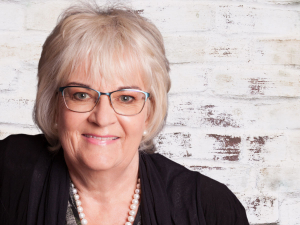M.I.A.
OPINION: The previous government spent too much during the Covid-19 pandemic, despite warnings from officials, according to a briefing released by the Treasury.
 Julie South says the Government could help the vet sector by immediately opening up the working holiday visa scheme.
Julie South says the Government could help the vet sector by immediately opening up the working holiday visa scheme.
Scrapping MIQ requirements from next month means vet clinics can plan ahead with certainty, says recruiter Julie South, VetStaff.
South told Rural News that while self-isolation will still be a requirement, it makes things much easier.
She says the Government could help the vet sector by immediately opening up the working holiday visa scheme.
"As well as overseas qualified vets coming here to work on a permanent basis being restricted over the last two years, what's also made it hard is the complete lack of vets and vet nurses being able to have their OE here via working holiday visas," says South.
"It's these vets and experienced vet nurses who provided the critical locum services to clinics from Kaitai to the Bluff and everywhere in between that we've been so desperately short of over the last two years."
South says she knows many other sectors which urgently require overseas workers for their businesses to survive.
"However, it would be great if all government departments worked together for the greater good of New Zealand's veterinary sector so that vets and vet nurses who wanted to have their OE Down Under are granted working holiday visas sooner rather than later," she says.
"Given it can take four to six months to get a vet into NZ when everything is running smoothly pre-pandemic (resignation period required in their home country, visa insurance and other requirements), I anticipate we're not going to notice any significant relief until around spring, so urgency is definitely required."
South says she's noticed a few more enquiries since the border opening announcement.
"Which is good to see, because I was starting to wonder how much damage had been done to NZ's international brand overseas with our closed-door approach over the last two years."
This month, Prime Minister Jacinda Ardern outlined her plan to reopen NZ's borders.
She announced that from Sunday 13 March, there will also be an expanded border exception for critical workers and skilled workers earning at least 1.5 times the median wage, who will also be eligible to enter New Zealand.
"This means that health workers, farm managers, and horticultural workers will all be eligible to enter New Zealand, self-isolate for a short period and then go about their business," Ardern claims.
Plan Welcomed By DairyNZ
DairyNZ is welcoming the plan for critical overseas workers to self-isolate from next month.
Chief executive Tim Mackle says that the ability to get the workers through the border the class exemption was not achieving its goal of allowing international workers onto farms.
"We have been working with the Government, putting forward several suggestions as to how our sector could manage the balance between the health risk and our labour needs. It is rewarding to see how this planning has paid off."
However, he says there is still work to be done to ensure that the sector gets the amount of people it needs to address a severe labour shortage.
"With a shortfall of about 4,000-6,000 dairy workers we have asked the Government for a further 1,500 international workers be allowed into New Zealand in 2022," Mackle adds.
New Zealand and Chile have signed a new arrangement designed to boost agricultural cooperation and drive sector success.
New DairyNZ research will help farmers mitigate the impacts of heat stress on herds in high-risk regions of the country.
Budou are being picked now in Bridge Pā, the most intense and exciting time of the year for the Greencollar team – and the harvest of the finest eating grapes is weeks earlier than expected.
The Real Estate Institute of New Zealand (REINZ) has released its latest rural property report, providing a detailed view of New Zealand’s rural real estate market for the 12 months ending December 2025.
Rural retailer Farmlands has released it's latest round of half-year results, labeling it as evidence that its five-year strategy is delivering on financial performance and better value for members.
OPINION: "We are back to where we were a year ago," according to a leading banking analyst in the UK, referring to US president Donald Trump's latest imposition of a global 10% tariff on all exports into the US.

OPINION: A mate of yours truly reckons rural Manawatu families are the latest to suffer under what he calls the…
OPINION: If old Winston Peters thinks building trade relations with new nations, such as India, isn't a necessary investment in…